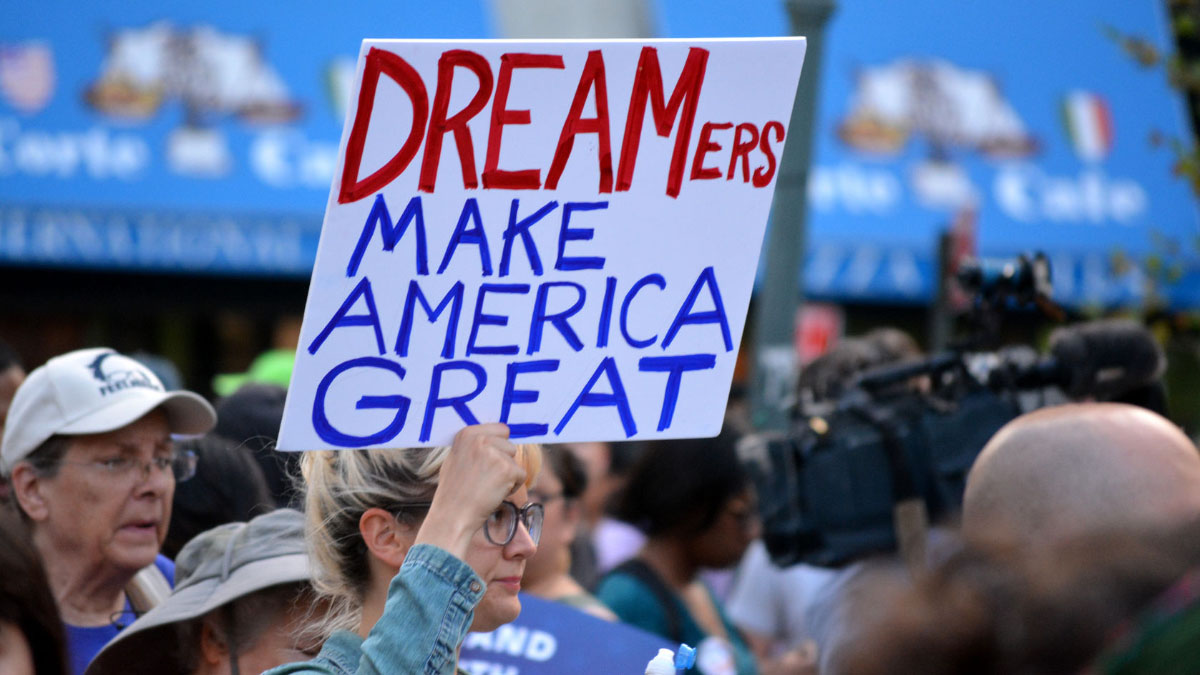Controversy continues to swirl around immigration, with some politicians recently opposing any deal that would grant amnesty and a legal path to citizenship for “Dreamers”—recipients of Deferred Action for Childhood Arrivals (DACA). DACA has allowed some immigrants who were brought to the United States illegally as children to receive renewable deferrals of deportation and work permits.
One point of contention concerns what some call “chain migration.” This is the U.S. family-based preference system for allocating legal permanent resident visas or green cards. Some anti-immigration activists claim that continuing DACA and granting amnesty to its recipients could unleash a flood of new immigration applications because Dreamers would be able to sponsor family members for green cards. For instance, speaking on the floor of the Senate, Tom Cotton (R-AR) stated that allowing permanent resident status for DACA recipients would “create a whole new category of American citizens who can now get legal status for their extended families, to include the very parents who brought them here in violation of the law in the first place.”
It’s not just politicians who voice concerns. NumbersUSA, a nonprofit that favors “reductions in immigration numbers,” claims that offering amnesty even to a single immigrant would unleash a “possibly never-ending chain” of family members. The organization further argues that “chain migration adds more than a quarter million people a year” to the United States.
While it’s true that some 250,000 people receive family-sponsored green cards each year, this number has precisely nothing to do with amnesty. Moreover, offering green cards or citizenship to DACA recipients would likely not increase that number. Suggestions to the contrary indicate a complete misunderstanding of U.S. immigration policy.
It is true that under the family-based system, the number of visas issued to immediate family members—children under 21 and spouses—is not fixed. However, DACA recipients are unlikely to sponsor many visas in this category. Why? Since Dreamers by definition were brought to this country as children, it is likely that DACA recipients who are married met their spouses in the United States—and those spouses may already be citizens. Moreover, children of DACA recipients born in the United States are already citizens.
While other family-based visas would be available to DACA recipients if they were granted amnesty or citizenship, these are subject to strict quotas. Each year, approximately 226,000 visas are made available to family members divided among several categories. Three of these categories are reserved primarily for adult children of citizens and green-card holders and their minor children. DACA recipients would be unlikely to request these visas for the reasons mentioned above.
The final visa category covers brothers and sisters of citizens, their spouses, and children. Again, DACA recipients would be unlikely to request such visas. The only siblings who could qualify would be those left behind by parents when they migrated or who are already in the country but ineligible for DACA. Other siblings would either be DACA recipients themselves or born in the United States and therefore already citizens. It is also important to note that relatively few visas are issued in this category—just 65,000 a year.
In addition, the United States has strict per-country limits on the number of visas issued. This means that even if DACA recipients’ relatives were to apply en masse for all these visas, the number of immigrants would not increase. It would only increase the wait time—which is already incredibly long. Consider that this month Customs and Immigration Services is issuing green cards to Mexican immigrants who had their green-card applications approved in November 1997—over 20 years ago! (The majority of DACA recipients hail from Mexico.)
The claim that granting DACA recipients legal status would increase immigration is unwarranted. (Although it is worth noting that increased immigration would actually be a good thing.) Most relatives of DACA recipients who would fall under the family-based preference system probably already have some form of legal status. Those who do not would have a long road to obtaining legal status.
The anti-immigration activists’ arguments against DACA just don’t hold water.









